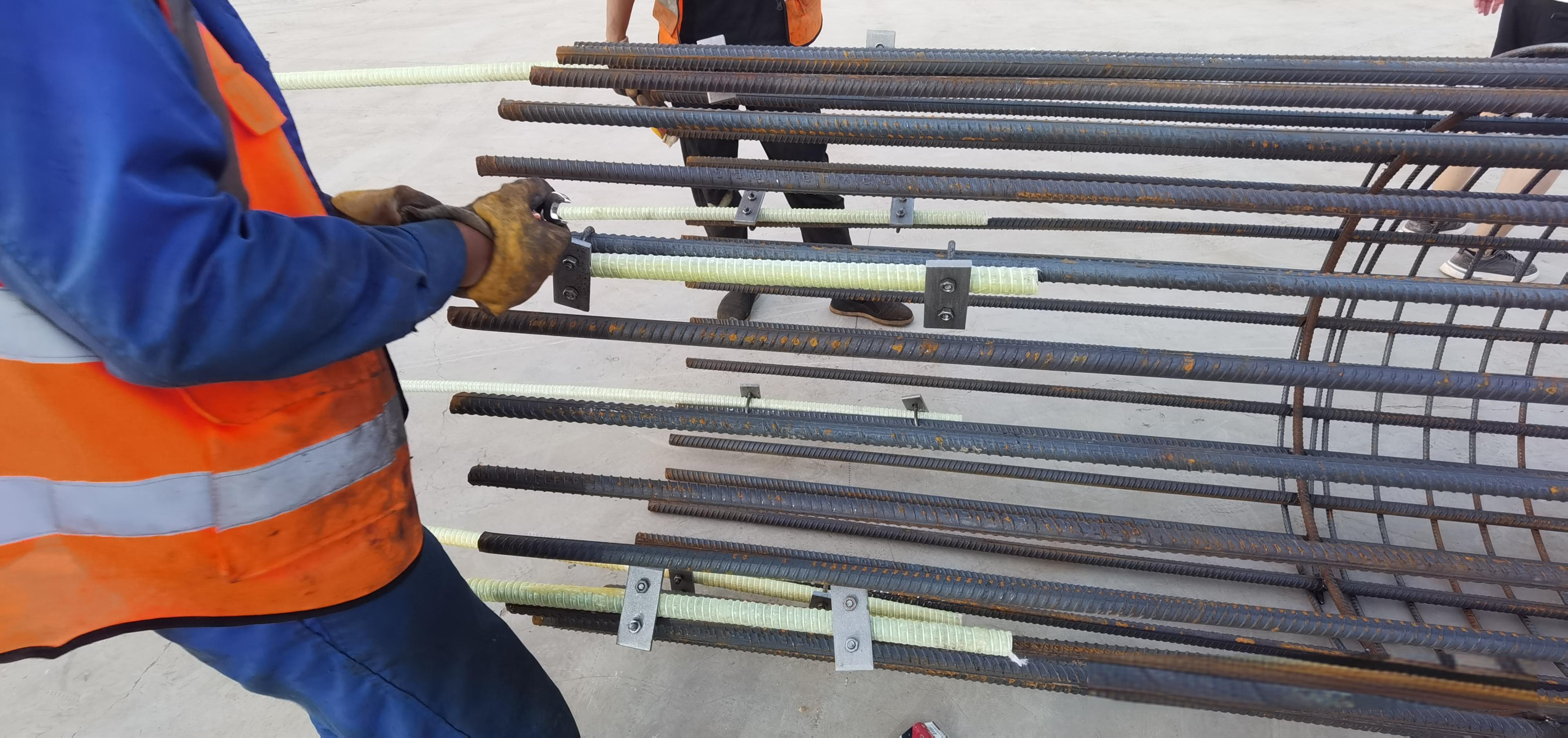Steel Rebar vs. Its Alternatives: Which Is Better for Your Project?
Steel rebar has long been the go-to reinforcement material for construction projects, providing the necessary tensile strength to support concrete structures. However, evolving industry needs, coupled with environmental and economic challenges, have sparked interest in alternatives to steel rebar. From reducing costs to improving durability and promoting sustainability, these alternatives offer compelling benefits. In this article, we’ll compare steel rebar with its alternatives and help you determine which is better for your project.

Understanding Steel Rebar: The Backbone of Construction
Steel rebar, short for "reinforcing bar," is a steel rod used to reinforce concrete. Concrete is strong in compression but weak in tension, and rebar addresses this weakness, making structures stronger and more durable. Historically, steel rebar has been used in bridges, skyscrapers, highways, and residential buildings due to its high tensile strength and availability.
Advantages of Steel Rebar
- Strength and Durability: Steel rebar can withstand significant tension, making it ideal for heavy-load applications.
- Compatibility with Concrete: Its thermal expansion properties closely match those of concrete, ensuring structural stability.
- Availability: Steel rebar is widely produced and readily available in most regions.
Limitations of Steel Rebar
Despite its benefits, steel rebar has several drawbacks:
- Corrosion Susceptibility: In moisture-rich environments, steel rebar can corrode, compromising structural integrity.
- Environmental Impact: Steel production is energy-intensive and contributes significantly to carbon emissions.
- Cost: The fluctuating price of raw materials can make steel rebar expensive.
Why Look for Alternatives to Steel Rebar?
The construction industry’s shift toward sustainability and cost-effectiveness has fueled the demand for alternatives to steel rebar. Here’s why:
- Environmental Concerns: Steel manufacturing produces greenhouse gases, driving the search for eco-friendly options.
- Rising Material Costs: Increasing steel prices make projects less economical, pushing contractors to explore alternatives.
- Specialized Needs: Certain environments, such as coastal areas, require materials with higher corrosion resistance than steel.
Top Alternatives to Steel Rebar
Modern advancements have introduced several innovative alternatives to steel rebar. Below are the top contenders:
1. Fiberglass Reinforced Polymer (FRP)
FRP is made from a combination of fiberglass and resin, offering superior performance in certain conditions.
Key Benefits:
- Non-corrosive, making it ideal for marine and coastal construction.
- Lightweight, reducing transportation and handling costs.
- High tensile strength comparable to steel.
Applications: Used in bridges, seawalls, and wastewater treatment plants.
Cost Comparison: Although more expensive initially, its durability lowers maintenance costs over time.
2. Basalt Reinforcement Bars (BFRP)
Derived from volcanic rock, basalt bars are gaining popularity as a sustainable and durable alternative.
Key Benefits:
- High resistance to thermal and chemical exposure.
- Lightweight and eco-friendly.
- Comparable tensile strength to steel.
Applications: Commonly used in road construction, industrial flooring, and green building projects.
Cost Comparison: More affordable than carbon fiber options, with excellent long-term value.
3. Carbon Fiber Reinforced Polymer (CFRP)
Known for its exceptional strength-to-weight ratio, CFRP is a premium alternative to steel rebar.
Key Benefits:
- Extremely lightweight and strong.
- Resistant to corrosion, chemicals, and moisture.
- Long service life with minimal maintenance.
Applications: Frequently used in high-performance structures such as bridges and industrial facilities.
Cost Comparison: One of the most expensive options, but its longevity and performance justify the investment.
4. Stainless Steel Reinforcement
While not entirely an alternative, stainless steel reinforcement provides enhanced properties over traditional steel rebar.
Key Benefits:
- Superior resistance to rust and corrosion.
- Longevity in harsh environments.
- Compatibility with standard construction techniques.
Applications: Ideal for coastal areas, chemical plants, and high-humidity regions.
Cost Comparison: Higher initial cost, but significant savings on maintenance and repairs.
5. Bamboo Reinforcement
Bamboo is a natural, renewable resource that offers an eco-friendly alternative to steel.
Key Benefits:
- Low carbon footprint and sustainable.
- Readily available in regions with abundant bamboo growth.
- Flexibility and ease of handling.
Applications: Suitable for low-cost housing and temporary structures.
Cost Comparison: Inexpensive but limited in strength and durability compared to other alternatives.
How to Choose the Right Alternative for Your Project
Selecting the best alternative depends on various factors:
- Project Requirements: Evaluate the load-bearing needs and environmental conditions.
- Budget: Consider upfront costs versus long-term savings.
- Sustainability Goals: Determine the importance of reducing environmental impact.
- Expert Advice: Consult with a structural engineer to ensure compatibility and compliance with local building codes.
Comparative Analysis: Steel Rebar vs. Alternatives
| Property | Steel Rebar | FRP | BFRP | CFRP | Stainless Steel | Bamboo |
|---|---|---|---|---|---|---|
| Tensile Strength | High | High | Moderate to High | Very High | High | Moderate |
| Corrosion Resistance | Low | High | High | Very High | Very High | Low |
| Environmental Impact | High | Low | Low | Moderate | Moderate | Very Low |
| Cost | Moderate | High | Moderate | Very High | High | Low |
Advantages of Using Alternatives to Steel Rebar
- Environmental Benefits: Many alternatives produce fewer emissions during manufacturing.
- Reduced Maintenance Costs: Non-corrosive options last longer in harsh environments.
- Improved Performance: Tailored solutions for specific conditions enhance durability.
Challenges of Adopting Steel Rebar Alternatives
- Higher Initial Costs: Some options, such as CFRP, require significant investment upfront.
- Limited Availability: Access to alternatives may be restricted in certain regions.
- Training Needs: Construction teams may need additional training for installation.
Future Trends in Construction Reinforcements
The future of construction reinforcements is geared toward sustainability, innovation, and resilience. New materials and advanced manufacturing techniques promise to make alternatives more accessible and cost-effective, revolutionizing the industry.
Frequently Asked Questions About Alternatives to Steel Rebar
1. Are steel rebar alternatives as strong as traditional steel?
Yes, many alternatives like CFRP and FRP offer comparable or superior strength.
2. What are the cost differences between steel rebar and its alternatives?
Alternatives can be more expensive initially but often lead to savings in maintenance and longevity.
3. Can alternatives to steel rebar be used in all types of construction?
Most alternatives are suitable for a wide range of applications, though some may have limitations in extreme load conditions.
4. Are alternatives widely available in the market?
Availability varies, but global interest in sustainable construction is increasing access.
5. Which alternative is the most environmentally friendly?
Bamboo and basalt bars are among the most eco-friendly options.
6. Do alternatives to steel rebar require specialized installation techniques?
Some, like FRP and CFRP, may require additional training for proper installation.
Conclusion
Choosing between steel rebar and its alternatives depends on your project’s specific needs, budget, and environmental considerations. While steel rebar remains a reliable choice, modern alternatives offer innovative solutions that enhance durability, reduce environmental impact, and save costs in the long run. Consider exploring these options for your next construction project and partner with experts to make an informed decision.

